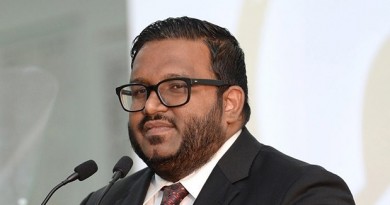Maldives’ Withdrawal from Commonwealth Suggests Government Corruption
By Joshua Corpuz
Staff Writer
On October 13, the Republic of Maldives, an island nation in the Indian Ocean, announced that it will be withdrawing from the Commonwealth in an official government statement by the Ministry of Foreign Affairs. The Maldives, a member of the Commonwealth for over 30 years, decided to withdraw due to accusations of human rights infringements and violating the Commonwealth Charter.
President Abdulla Yameen of the Republic of Maldives writes that the country has been treated “unfairly and unjustly” by the Commonwealth. Yameen reasons that the punitive treatment is “in the name of democracy promotion, to increase the [Commonwealth’s] own relevance and leverage in international politics.”
The country has been charged with violations such as lack of independence of the Human Rights Commission of the Maldives, detaining political dissenters, lack of freedom of assembly, and the reintroduction of the death penalty, according to the Annual Amnesty International Report. Due to these violations, the Commonwealth has been considering suspending the Maldives since 2012, if these issues were not addressed by the next meeting in March 2017.
Amnesty International’s South Asia Director, Champa Patel, criticized the Maldives’ withdrawal. She said, “The Maldives authorities should address their own human rights situation rather than lash out at legitimate criticism. […] Human rights have been in a complete freefall in the country over the past few years. […] Instead of complaining about unfair treatment, the Maldives government should look at engaging more constructively with the international community.” Patel also talked about the governmental intervention in human rights perversions that violate the Commonwealth Charter, a document of laws and regulations the Maldives signed.
Although the country will go through with the withdrawal process, many people assert that the withdrawal may be detrimental to the country. Ahmed Shaheed, a former foreign minister of the Maldives, says that the withdrawal will be counterproductive to the country’s goals. The New York Times reports him saying in a telephone interview, that Yameen is getting deeper and deeper into isolation and that he will receive more criticism from the Commonwealth because of it.
Commonwealth Secretary-General Patricia Scotland is apologetic regarding the departure, and “will be hoping that the Maldives’ separation will be temporary, and that the Maldives will fee able to return to the Commonwealth family and all that it represents in due course.”
Boris Johnson, Foreign Secretary of the Commonwealth, said, “We believe in the Commonwealth and its commitment to improving the lives of people across all its member states. The Commonwealth is an organization dedicated to developing free and democratic societies, and to promoting peace and prosperity. And we regret that the Maldives has chosen to leave.” He also mentioned that the United Kingdom will still be assisting with the Maldives, even it is not a formal member of the Commonwealth.
The Commonwealth has a membership of 53 countries, most of which are former British colonies. The Commonwealth has sought to improve the lives of its member countries through the promotion of democracy, human rights, share interests, and rule of law. Although the Commonwealth has many cooperative states, it has suspended members such as Pakistan, Fiji, Nigeria, and Zimbabwe. No country has formally been expelled but some have withdrawn, such as Zimbabwe in 2003 and most recently The Gambia in 2013, BBC reports. Despite the departure of the Maldives, the Commonwealth will be supportive of the country if it ever returns to become a member state once again.



